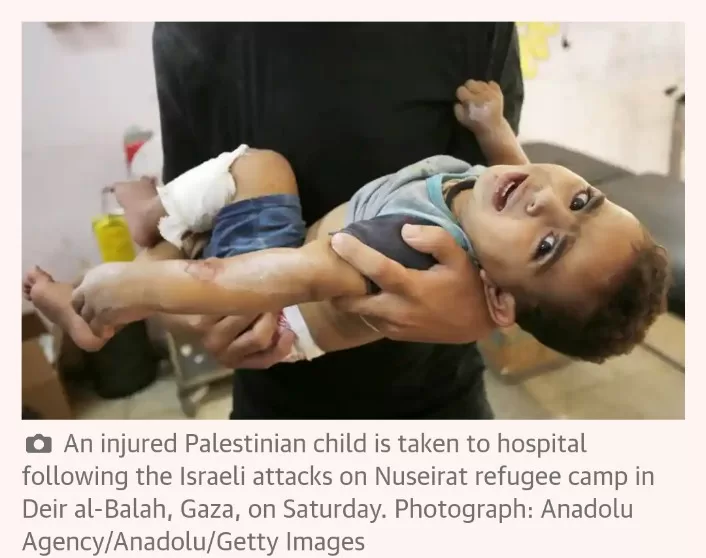A profound and divisive debate has emerged concerning the best approach to alleviate the dire situation in Gaza, where civilians face immense suffering as vital resources such as food, medicine, and water become increasingly scarce. The Israeli military campaign, primarily targeting Hamas, has drawn widespread international consensus on the tragic plight of innocent civilians in Gaza, who endure relentless aerial bombardments and the depletion of essential provisions.
United States Secretary of State, Antony Blinken, the chief diplomat of Israel’s staunchest ally, emphasized the imperative need for “protecting Palestinian civilians” during his recent visit to Tel Aviv. While there exists a general consensus that too many innocent lives in Gaza are being lost, the ongoing debate centers around the most appropriate course of action to alleviate their suffering, with differing terminologies further complicating the discourse.
Blinken and key Israeli allies advocate for a “humanitarian pause,” which entails a cessation of hostilities to facilitate the delivery of humanitarian aid to Gaza. Conversely, leading aid organizations, UN experts, and nations with pro-Palestinian stances call for a ceasefire. Additionally, there have been appeals for a truce, humanitarian truce, de-escalation, humanitarian ceasefire, and cessation of hostilities. The multiplicity of terminologies has intensified the contentious debate over the duration and conditions of such pauses in the conflict.
The disparity between these terms is predominantly political rather than legal, according to Helen Duffy, a professor of international humanitarian law and human rights at Leiden University. Central to this dispute is whether and how the Israeli military should continue to target Hamas in Gaza, particularly in the aftermath of Hamas’s attacks on Israel in early October, which resulted in the massacre of over 1,400 people, the majority of whom were civilians in their homes, on the streets, and even at a desert gathering.
Proponents of a ceasefire argue that a humanitarian pause is insufficient to address the overwhelming humanitarian crisis in Gaza. Given the extensive damage, loss of life, and deprivation inflicted by a month of intense conflict, they contend that a ceasefire is imperative. For instance, Egypt’s foreign minister, Sameh Shoukry, echoed this stance, emphasizing the necessity of a durable, negotiated ceasefire to address the humanitarian repercussions of the crisis effectively. Amnesty International, an advocate for a ceasefire, highlights the need for sufficient time and guarantees against further attacks on infrastructure repair and the provision of essential resources.
On the other hand, those who resist a ceasefire argue that Israel must urgently defend itself against a group that poses a significant threat, denies Israel’s right to exist, and has been designated as a terrorist organization by numerous countries. Antony Blinken stated that a ceasefire could allow Hamas to regroup and potentially initiate another devastating attack.
A pragmatic perspective suggests that a humanitarian pause should be embraced as an initial, life-saving step towards a more permanent resolution. Notably, the International Crisis Group advocates for the US and its allies to press Israel for a cessation of bombardment, uphold the commitment to provide humanitarian access to Gaza, and outline conditions for a lasting ceasefire, including Gaza’s reconstruction. This approach bridges the gap between those advocating for a ceasefire and those emphasizing the urgency of a humanitarian pause.






